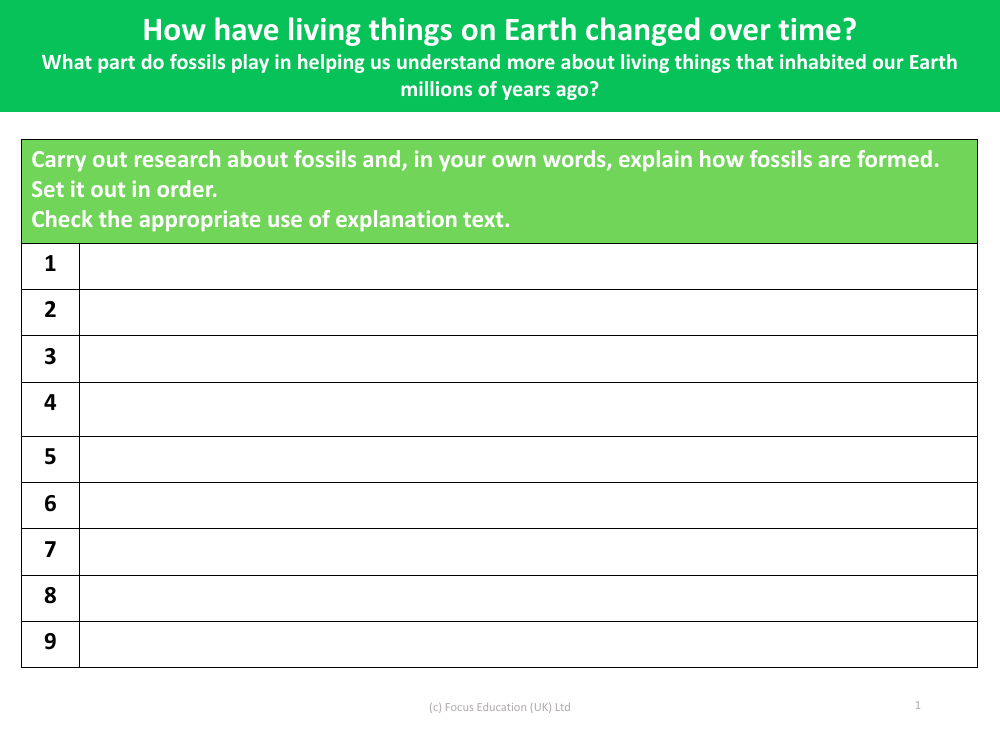What part did fossils play in helping us understand more about living things that in habited our Earth millions of years ago? - Fossil research task - worksheet

Science Resource Description
Fossils are invaluable to scientists as they provide a historical record of life on Earth, capturing evidence of organisms that lived millions of years ago. The process of fossilisation is quite rare and occurs under specific conditions. It begins when an organism dies and is quickly buried by sediment, such as sand, mud, or volcanic ash. This rapid burial is crucial as it protects the body from scavengers and slows down the decay process.
Over time, layers of sediment build up over the organism's remains. The weight of these layers compresses the sediment into rock and encases the remains. Mineral-rich water then seeps through the sediment, and minerals precipitate out of the water, gradually replacing the organic material cell by cell in a process known as permineralisation. This can preserve even the finest details of the organism. Eventually, the remains are transformed into rock themselves. Erosion or tectonic activity may later expose the fossilised remains, allowing paleontologists to discover them. Through the study of fossils, scientists can deduce the appearance, diet, and behaviours of extinct species, track evolutionary processes, and understand the environmental conditions of the Earth's past eras.




